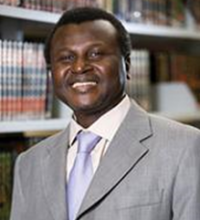
By Dr Alhagi Manta Drammeh
Reform has been the hallmark of Islamic thought for generations. It all started when the Prophet of Islam [Muhammad] appointed Maaz Ibn Jabal as the Governor of Yemen and asked him what he would do if confronted with issues he could not find direct answers in the Qur’an or the Prophetic tradition. He replied that he would resort to analogical and intellectual reasoning referred to by Muslim jurists as (ijtihad). Thus, Ijtihad became synonymous with rationality, empirical knowledge and scientific enquiry in Islamic tradition. In fact, the ability to deeply understand the Holy Qur’an or the Sunnah requires an element of rational thinking. Arguably, in order to understand both the Qur’an and the Sunnah requires an interdisciplinary approach early scholars referred to as tool sciences (Ilm alaalah) in order to appreciate deeply complex issues from human psychology, spirituality, cosmology, geography and philosophy to embryology and theology. Indeed, Prophet Muhammad reminded us in many sayings that the ink of a scholar is much better than the blood of a martyr by hundreds of times. This is in reference to the significance of the need to engage with the scriptures with depth, profundity and reflective scholarship detached from parochial and superficial conclusions. Indeed, the understanding of revelation (wahy) requires double-reading. That is the reading the recited text in the Qur’an and the other reading is related to the reading of the universe, cosmos and the nature of things. Needless to say, the understanding of the Qur’an will require one to know Arabic language in all its manifestations, hadith sciences, history, jurisprudence and social/human sciences among others. As a result, some scientists who study the Qur’an are interested in the scientific aspects, while educationists and Sufis are interested in the moral, educational and ethical benefits learners get. On the other hand, philosophers approach it from rational perspectives. In addition to that, we will see scholars of law are interested mainly in the legal perspectives within the Qur’an. Similarly, social anthropologists will look at the Qur’an by studying the interesting human stories, civilisations and personalities. This what one can call human-centred approach within the Qur’an. Relative to Hadith/Sunnah, a whole discipline was developed to study and understand hadith (mustalah al-Hadith). It is a set of principles in order to authenticate hadith from the rigorous study of both the text (matn) and transmission (sanad) of hadith. In fact, transmission became unique to Islamic tradition in dealing with hadith scholarship I fondly call surgical operation of hadith (Ilm al-Jarh). In addition, Muslims have developed schools of jurisprudence and schools of theology. All these schools have to do with interpretation and circumstances. Within one school of law for example, you will have sub-schools. Finally, I argue that circumstances dictate the need to respond to new issues intelligently and rationally without being necessarily apologetic. Thus, Muslims were able to critically engage with the Greek philosophy. Precisely, the Prophet said that at the end of each century, Allah will send one to renew the religion. This can be individuals in different parts of the world or institutions and groups of people. Consequently, I can claim that renewal or reform is not new to Islam. In fact, we had reformers throughout the Muslim world in different parts. We have Muhammad Abduh, Uthman Dan Fodio, Al-Kawaakbi, Sering Banba, Imam Malik Sey and Karang Khalifah Sillah, among hundreds.
‘Dr Manta is Managing Director of the Timbuktu International Research Centre and Associate Professor of Islamic Theology & Philosophy at the Muslim College.
